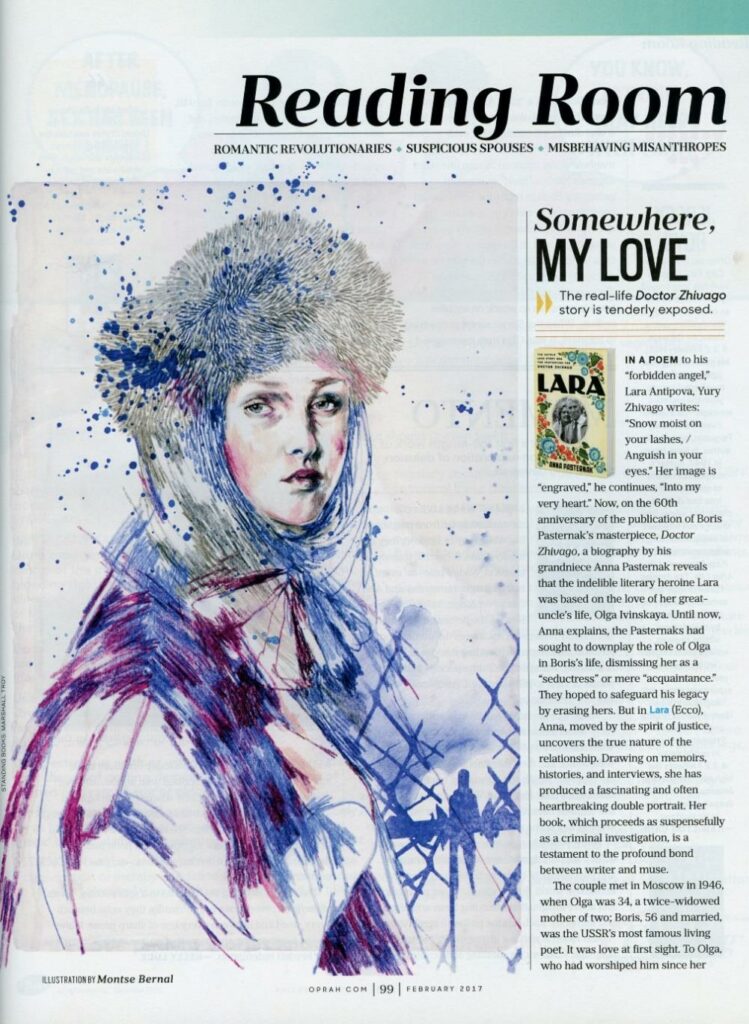

17th February 2017
In a poem to his “forbidden angel,” Lara Antipova, Yury Zhivago writes: “Snow moist on your lashes, / Anguish in your eyes.” Her image is “engraved,” he continues, “Into my very heart.” Now, on the 60th anniversary of the publication of Boris Pasternak’s masterpiece, Doctor Zhivago, a biography by his grandniece Anna Pasternak reveals that the indelible literary heroine Lara was based on the love of her great-uncle’s life, Olga Ivinskaya. Until now, Anna explains, the Pasternaks had sought to downplay the role of Olga in Boris’s life, dismissing her as a “seductress” or mere “acquaintance.” They hoped to safeguard his legacy by erasing hers. But in Lara, Anna, moved by the spirit of justice, uncovers the true nature of the relationship. Drawing on memoirs, histories and interviews, she has produced a fascinating and often heartbreaking double portrait. Her book, which proceeds as suspensefully as a criminal investigation, is a testament to the profound bond between writer and muse.
The couple met in Moscow in 1946, when Olga was 34, a twice-widowed mother of two; Boris, 56 and married, was the USSR’s most famous living poet. It was love at first sight. To Olga, who had worshiped him since her teens, Boris was a “god.” As he kissed her hand, she was “shaken by the sense of fate.” It was during a romantic walk early in Boris and Olga’s courtship that they spied a manhole cover stamped zhivago (the word suggests “life” or “lively” in Russian), prompting Boris to retitle the novel he had been planning to call Boys and Girls.The core of the book changed entirely as the affair progressed. Boris came to depend on Olga for inspiration and on his wife for an efficiently run household. His work on Zhivago infuriated Soviet authorities, who saw his words as an attack on socialist realism. When the Soviet secret police tried to interfere, it was Olga they interrogated and harassed, not Boris or his wife. In 1949, it was she, not he, who was arrested and sent to the gulag for almost three years. When she returned to Moscow, they resumed their relationship, which lasted until Boris’s death in 1960—but he never divorced. Anna writes: “If he had married her, the Soviet authorities would not have dared to treat her so cruelly.” Yet in rehabilitating Olga, Anna comes to forgive her great-uncle his “shortcomings.” He lacked courage in this regard, she concedes, but she does not doubt “the depth and passion of his ardour” and asks: “What is Doctor Zhivago, if not his long and heartfelt love letter to her?”
— Liesl Schillinger